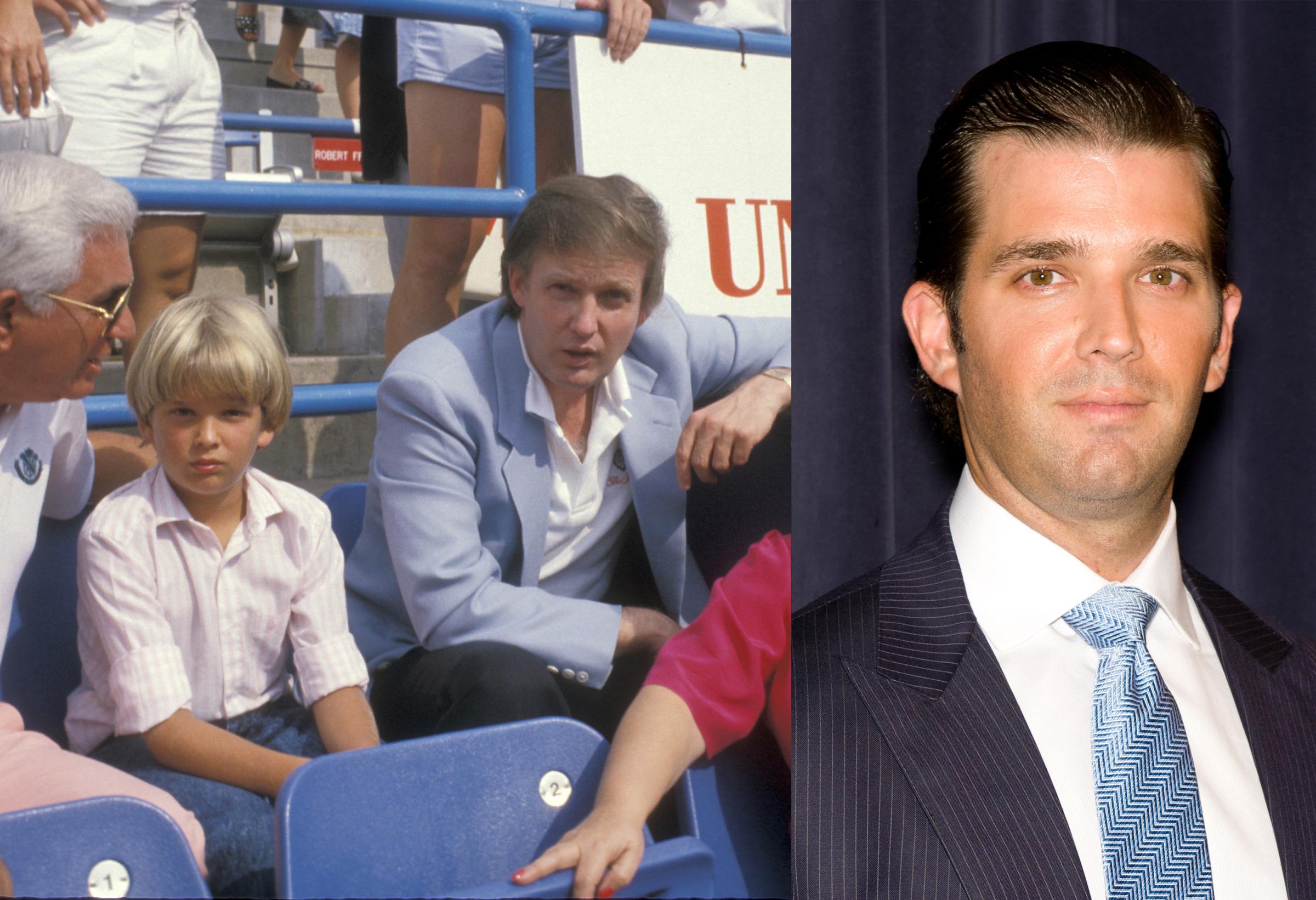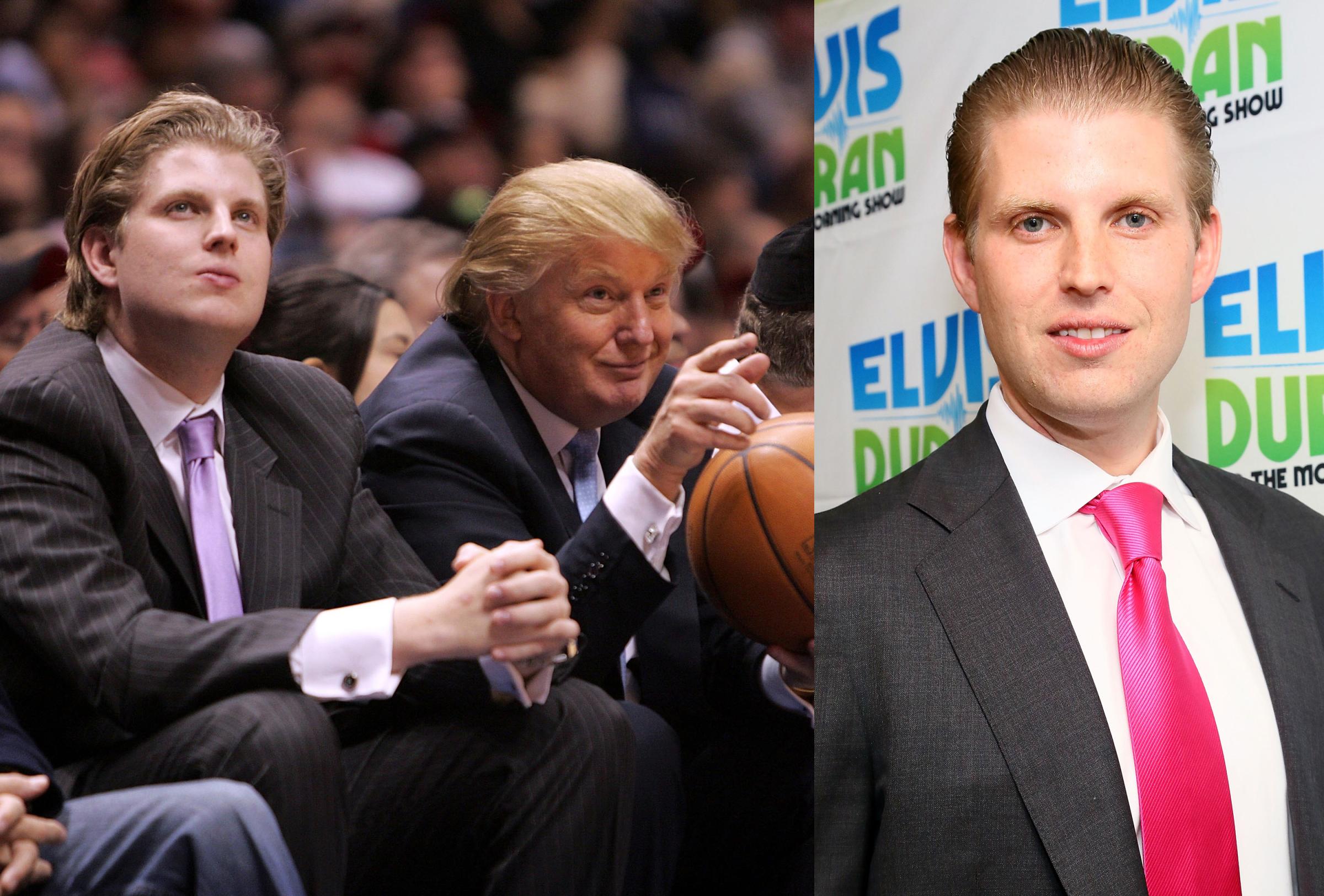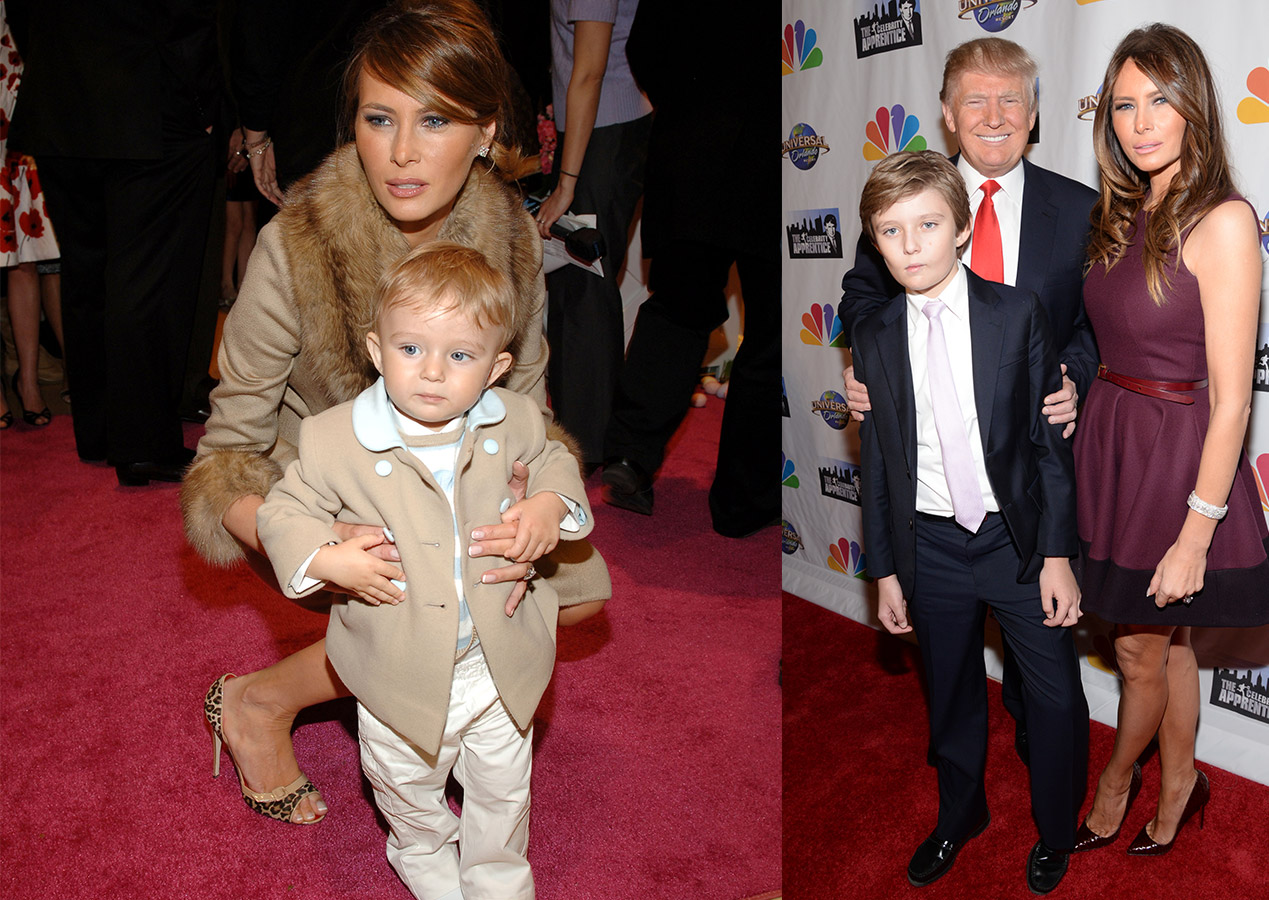Donald Trump sprinkles his stump speeches with profanity. He used to support abortion, and says he’s never sought forgiveness from God for his sins. He memorably referred to communion, the Christian sacrament commemorating Jesus’ last supper, as drinking “the little wine” and eating “the little cracker.” The thrice-married mogul calls the Bible his favorite book, but when pressed he couldn’t name his best-loved verse. He says he likes the Old and New Testaments about the same.
This is not the profile of an especially devout man, let alone a presidential candidate cut out to court Christian conservatives.
And yet national polls suggest that Donald J. Trump has forged a real connection with this voting bloc. In a recent New York Times/CBS News survey, the Republican frontrunner earned the support of 42% of evangelicals, far outpacing the rest of the GOP field, including his top rival, Texas Sen. Ted Cruz, who garnered 25%. A January NBC News/SurveyMonkey poll also showed Trump with the deepest support among white evangelicals, at 33%.
Of all the head-scratching elements of Trump’s rise in the GOP nominating contest, his success with the religious right may be the most confounding. In a field that features a Baptist preacher (Mike Huckabee), a candidate with a tithe-based tax plan (Ben Carson) and staunch social conservatives such as Cruz and Rick Santorum, a mainline Presbyterian has managed to grab the largest share of the party’s famously demanding values voters.
Read More: How Cruz Built His Christian Connection
And nobody is more baffled by this campaign twist than social conservative leaders. “Frankly, I cannot figure out the alleged white-evangelical attraction to Trump,” says Rev. Robert Sirico, president of the Acton Institute for the Study of Religion and Liberty. “To my ear, he simply is not one of them. He is obviously unfamiliar with the Bible and does not speak in the vocabulary of most evangelicals I know.”
Whatever Trump is preaching, the faithful seem receptive. On Jan. 18, he received a glowing welcome from Rev. Jerry Falwell, Jr., during a visit to Liberty University in Virginia, the world’s largest Christian college. “In my opinion, Donald Trump lives a life of loving and helping others as Jesus taught in the great commandment,” Falwell said, shortly before Trump mispronounced the name of one of the Bible’s prominent books.
Blessings like these that have helped Trump make inroads with a voting bloc his rivals are counting on, especially in places like Iowa, where 57% of GOP caucus-goers identified as evangelical in 2012. If Trump can maintain his share of support among values voters, the Republican frontrunner will be tough to beat.
Some rivals have sought to undermine Trump’s courtship of Christian conservatives. As the Iowa draw closer, Cruz has been assailing his “New York values,” tying Trump to the “socially liberal or pro-abortion or pro-gay-marriage” views of the Big Apple.
But interviews with prominent evangelicals suggest this line of attack may be missing the meaning of Trump’s connection with social conservatives. “Donald Trump basically gave voice to the idea that Washington is broken and needs to be fixed,” says Bob Vander Plaats, an Iowa evangelical leader supporting Cruz. “People right away resonate with that.”
Tony Perkins, president of the Family Research Council, believes many evangelicals feel “beaten down” by political correctness, especially on issues such as gay marriage. “Now they see Donald Trump, who is taking on that same elitist politically correct mindset and not backing down,” Perkins says. “They find common cause in this guy, even though he comes from a completely different world.”
In an election driven more by foreign policy than social issues, “fear is dominating more than faith,” Perkins continues. “Fear of what has happened to our nation, and fear of what may happen.” It is an odd twist, especially since the Bible cautions against an attitude of fear. “God has not given us a spirit of fear, but of power and of love and of a sound mind,” the apostle Paul wrote in a New Testament letter to his disciple Timothy.
Randall Balmer, a religious historian at Dartmouth College in New Hampshire, says Trump’s support illustrates that self-identified values voters still assess candidates through a pragmatic lens. In the holy trinity of politics, power and faith, “religion is at the bottom,” Balmer says. “It’s about politics, and it’s about power.”
Meet Donald Trump's Family





That conclusion is supported by Trump’s poll numbers. He does far worse among Latino evangelicals than he does among whites, which might be explained by his hardline stance against illegal immigration. “There are a lot of inconsistencies here,” says Rev. Sam Rodriguez Jr., president of the National Hispanic Christian Leadership Conference and an advisor to the campaigns of Jeb Bush and Marco Rubio. “On so many of the social issues that evangelicals coalesce around and gather around, Donald Trump would be on the opposite end.”
Read More: Latino Republicans Write Off Trump, Send Warning To Cruz
Which leaves faith leaders wondering whether pragmatic support for Trump undermines evangelicals’ hard-fought position as a pillar in the Republican firmament.
“It’s almost impressive, his disregard—he doesn’t even pretend to have a sophisticated position on questions of faith,” says Stephen White, fellow in the Catholic Studies program at the Ethics and Public Policy Center. “If Trump wins the nomination, he will have demonstrated that social conservatism is an unnecessary part of the Republican coalition, he will pull the rug out from social conservatism as it relates to the Republican Party.”
“This is an election cycle unlike any other,” says Perkins. “People are scratching their heads trying to figure it out.”
More Must-Reads from TIME
- Why Trump’s Message Worked on Latino Men
- What Trump’s Win Could Mean for Housing
- The 100 Must-Read Books of 2024
- Sleep Doctors Share the 1 Tip That’s Changed Their Lives
- Column: Let’s Bring Back Romance
- What It’s Like to Have Long COVID As a Kid
- FX’s Say Nothing Is the Must-Watch Political Thriller of 2024
- Merle Bombardieri Is Helping People Make the Baby Decision
Write to Alex Altman at alex_altman@timemagazine.com